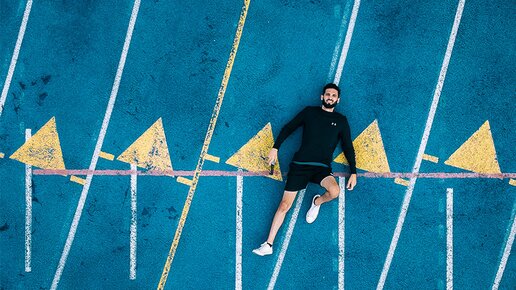Iron is a vital, essential trace element that plays a central role in our body – from oxygen supply to energy production. A lack of iron can therefore cause a variety of health symptoms. But when and how should you take iron to optimise absorption and minimise side effects? In this article, we take a closer look at the proper way to take iron supplements and explain what to look for in terms of time of day and dosage so that your body can get the most out of this important mineral.
Recommended iron intake: tips for taking iron supplements
When is the best time to take iron?
Consumed half an hour to an hour before a meal, the bioavailability is best; consumed with a meal, the consumption is more tolerable.
What do you need to be aware of when taking iron supplements?
The following applies to all iron supplements: Never take them at the same time as milk or dairy products. There should also be an interval of at least two hours between taking supplements containing calcium or magnesium.
In addition, you should drink coffee and black or green tea at different times to when you take the iron supplement or eat a meal, because the ingredients in these drinks can bind most of the iron and affect its absorption into the body.
It is best to take iron with orange juice (or another vitamin C-containing beverage) before meals, as this increases absorption in the body – or you can choose an iron supplement with vitamin C.
Iron dosage: What should the dosage of iron supplements be?
Low-dose iron is more effective than high-dose iron!
The issue of tolerance in particular is more important today than ever before: current guidelines recommend high doses of salts of bivalent iron (50 to 100 mg per day) to counteract low iron levels. The motto seems to be ‘high dose, strong effect’. It is an open secret that these very high dosages are often not tolerated.
However, a new finding reached the scientific mainstream several years ago – unfortunately without making the appropriate waves: low-dose iron is more effective than high-dose iron.
A team of researchers at ETH Zurich has shown in a study that lower amounts of iron are absorbed much more efficiently than high doses of iron, and they also allow for a gentler increase in iron levels. It therefore makes sense to take iron in lower amounts altogether. So you see: sometimes you have to leave even iron principles behind.
In summary – taking iron & dosages
Low-dose iron is absorbed more efficiently and tolerated better by our body. An iron supplement should be taken half an hour to an hour before meals. If you have problems with tolerance, it should be taken with food.
Frequently asked questions about iron supplements:
Iron should not be taken at the same time as dairy products or supplements containing calcium and magnesium. It is advisable to space out the intake by at least two hours. Coffee, black and green tea should also be taken separately from iron, as their ingredients can inhibit the absorption of iron in the body.
Iron should ideally be taken on an empty stomach, as the body can then absorb it better. The best time is about one hour and 30 minutes before a meal or two hours after.
To optimise your iron absorption, we recommend consuming iron-rich foods such as meat, legumes, whole grain products and green vegetables. It's best to combine these with vitamin C-rich foods such as paprika or oranges, as vitamin C improves iron absorption. If you have difficulty getting enough iron through diet or have a higher daily iron requirement, you can also take iron supplements.
Further reading:
Cappellini, M.D. et al. 2022. Iron metabolism and iron deficiency anemia in women. Fertil Steril. 2022 Oct;118(4):607-614. doi: 10.1016/j.fertnstert.2022.08.014. Epub 2022 Sep 6.
Wäger et al. 2021. BIOGENA Good Health Study: Vitamin D - Ergebnisse aus Europas umfangreichster Studie zu Mikronährstoffen, Gesundheit & Wohlbefinden. Mikronährstoffcoach: https://www.mikronaehrstoffcoach.com/de/at/mikronaehrstoffe/
micronutrient.eisen.html.
Moretti, D., et al. 2015. Oral iron supplements increase hepcidin and decrease iron absorption from daily or twice-daily doses in iron-depleted young women. Blood, The Journal of the American Society of Hematology, 126(17), 1981-1989.









